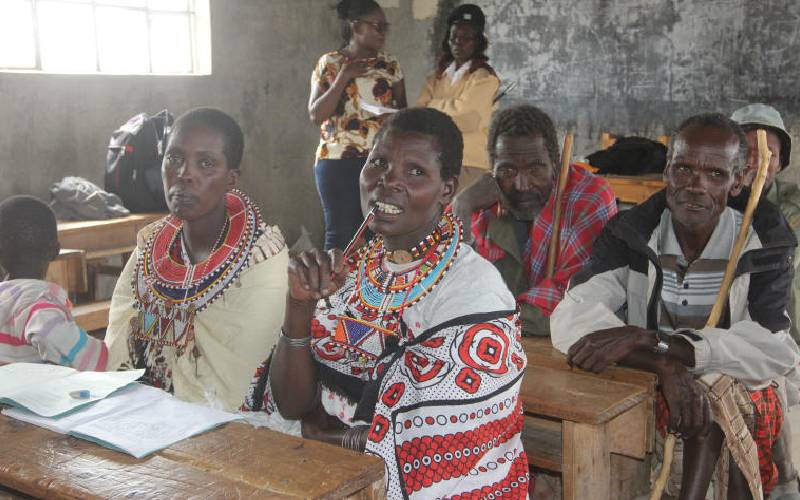×
The Standard e-Paper
Stay Informed, Even Offline

Adult Education students in class in Olking'e sub-county, Laikipia North. [Jenipher Wachie,Standard]
When adult students Philemon Kirui and Joab Okanja scored top grades in the Kenya Certificate of Secondary Education (KCSE) in 2016, it was a message of hope to those who had long given up on their dream of continuing with education.